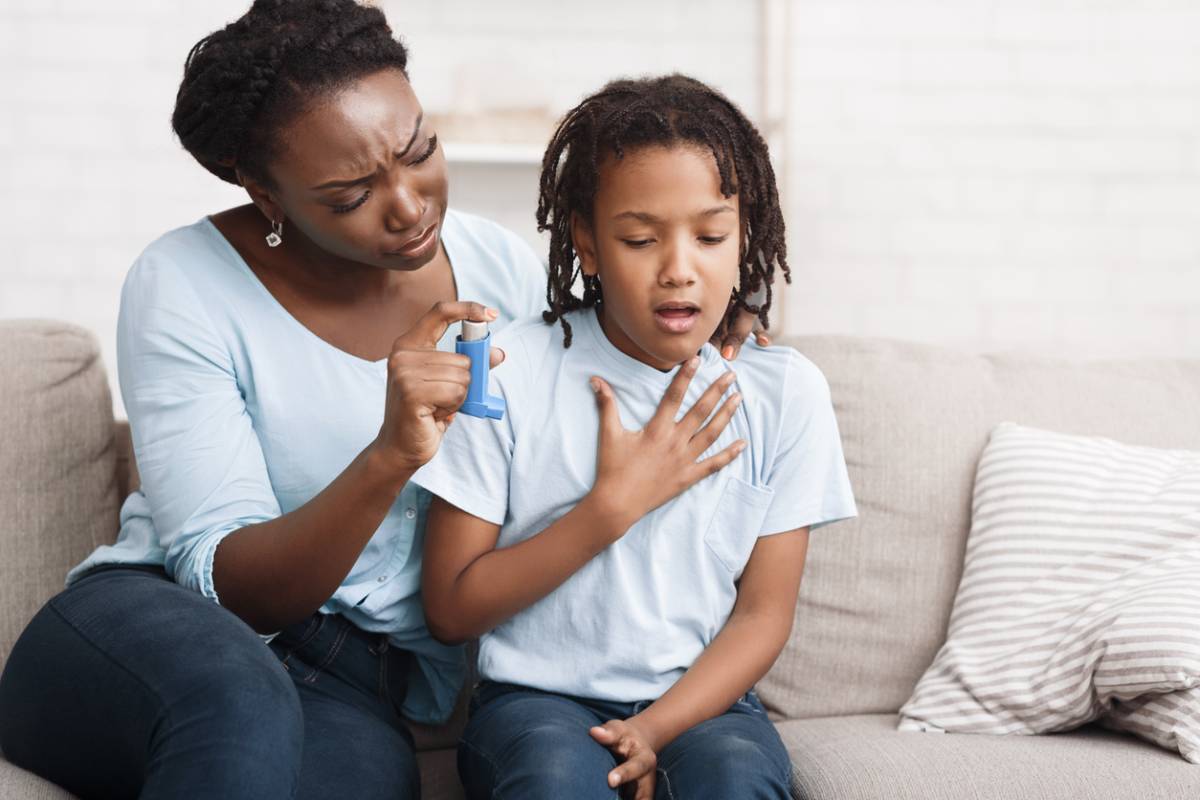About 7% of all children in the United States have some variation of asthma. It is also the most common chronic condition found in children. As a result, asthma is often a parent’s first concern when they see their little one having respiratory difficulties. To give you a better understanding of what childhood asthma looks like, let’s have a look at the early signs. Let’s look at the early signs of asthma in kids.
Distinguishing A Cold from Asthma
We all develop respiratory symptoms from time to time. Some babies struggle with nasal mucus and coughing as their bodies learn how to function outside the womb. Babies also get sick sometimes. It’s far from ideal. We can reduce the risk by ensuring that all of Baby’s visitors wash their hands and wear a mask, but sometimes it just happens.
Both viral illness and asthma can be dangerous for your little one, so it is important to seek medical attention whenever your child is experiencing any respiratory distress. However, only one of these two will continue to affect your child for years to come. Fortunately, there are a few give away signs that indicate a need to talk to an asthma specialist in NYC.
Early Signs of Asthma in Kids
When your child is still an infant, you can’t ask them about the sensation they feel associated with their symptoms. However, with more serious asthma you will hear wheezing if you listen closely. It’s the sound of air being pushed through a restricted space, which can produce a guttural reverberation or a light whistle.
If you aren’t hearing wheezing, then pay attention to how long your little one coughs after they get sick. Babies with asthma will generally experience coughing long after the cause of the infection or virus is gone.
The Signs to Look Out for in Young Children
Recognizing asthma can be slightly easier as children learn to express themselves, but it can still present a struggle. If your child is having frequent attacks, you may notice that they struggle to stay asleep and seem tired. They may also avoid more exuberant activity if they learn to associate it with the symptoms of asthma.
In addition to these behavioral cues, pay attention to coughing and listen for wheezing. If you notice a pattern, talk to your child about how their body feels. Children often have their own ways to explain the tightness they feel in their chest, so you may have to do some decoding. In any case, talk to your doctor even if your concerns aren’t confirmed. Asthma can be very dangerous for young children, and it’s better to be cautious.
Why Is Asthma More Dangerous for Children?
Severe asthma can be dangerous at any age. However, children tend to be especially prone to dangerous attacks. Part of this is just due to their age. It isn’t always the case, but many children grow to have far fewer asthma symptoms as adults. The other part is the result of kids being kids.
Your child will take time to recognize their triggers, and they may take even longer to realize how to minimize their effects. A child triggered by cat dander may happily go to cuddle a friendly cat and touch their face, for example. They just aren’t developmentally ready to deal with the reality of their condition, and that can be dangerous.
The Importance of Early Care
Given the extra dangers of childhood asthma, it’s very important to receive early pediatric asthma care in NYC. Your doctor will take you through the diagnostic process and help create a treatment plan to address your child’s needs. With the help of a qualified specialist, you can ensure that your child stays safe and has every opportunity to enjoy this beautiful life.

